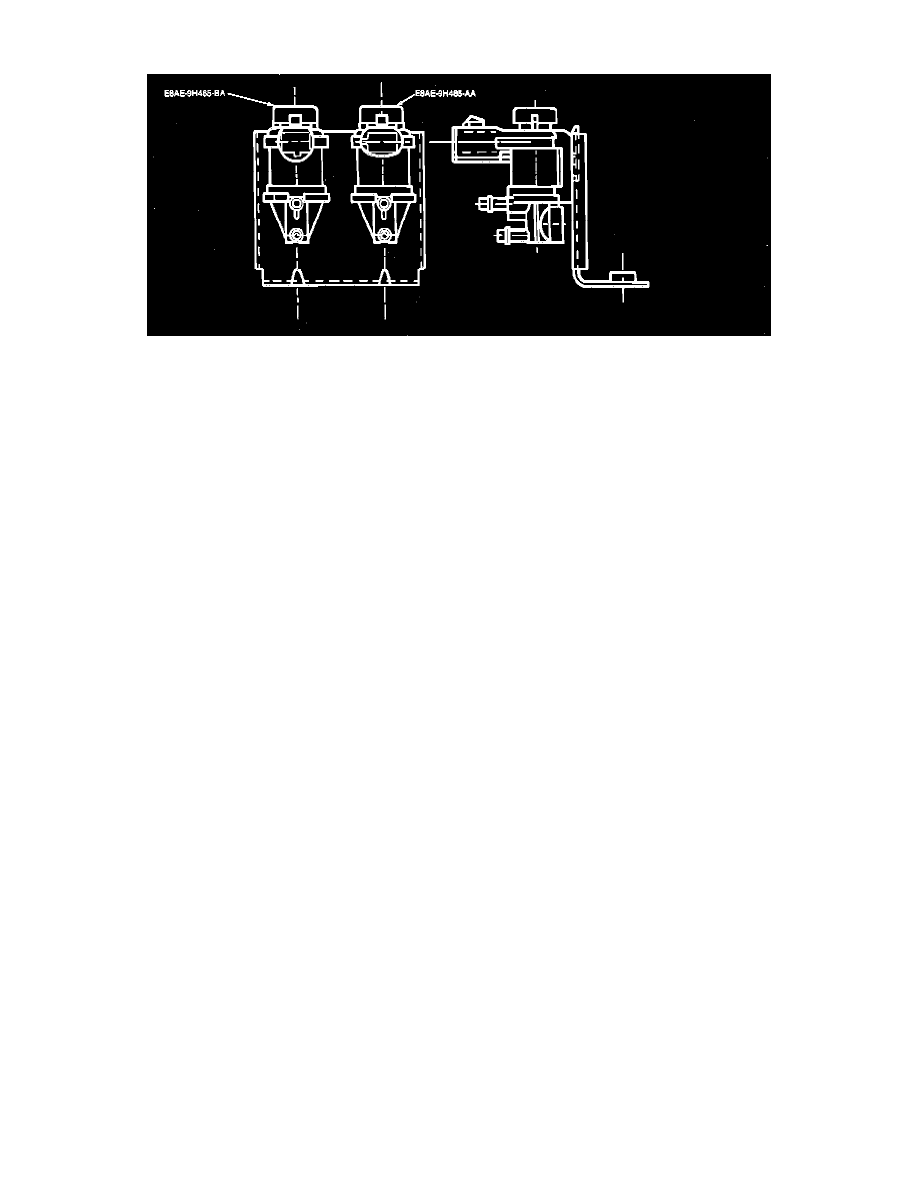Ranger 4WD V6-183 3.0L (1993)

Air Injection Control Solenoid: Description and Operation
Dual Thermactor Air Control Solenoid Valve
The Secondary Air Injector Bypass (AIRB) and Secondary Air Injector Diverter (AIRD) solenoids control whether or not vacuum is applied to the AIRB
and AIRD valves. The Powertrain Control Module (PCM) controls bypass and diverter valve operation by providing circuit ground for the Secondary
Air Injector Bypass (AIRB) Solenoid and the Secondary Air Injector Diverter (AIRD) Solenoid.
When the engine is STARTED and its coolant temperature is below 50°F (10°C), the PCM will not ground the AIRB solenoid. The AIRB Valve
diaphragm remains closed by spring pressure, causing pump air to be bypassed to the atmosphere.
When coolant temperature reaches 50°F (10°C), the PCM grounds the AIRB circuit and the AIRB solenoid is ENERGIZED. Vacuum is applied to the
AIRB valve diaphragm, the AIRB valve opens and pump air is sent to the AIRD valve. The PCM, at the same time, provides a ground for the AIRD
solenoid circuit, which allows vacuum to be applied to the AIRD valve diaphragm. This causes the AIRD valve to direct pump air to the exhaust
manifold.
Once the engine is in CLOSED LOOP MODE, 190°F (88°C), the PCM removes circuit ground for the AIRD solenoid. The diaphragm is CLOSED by
spring pressure, and pump air is redirected downstream to the catalytic converter.
